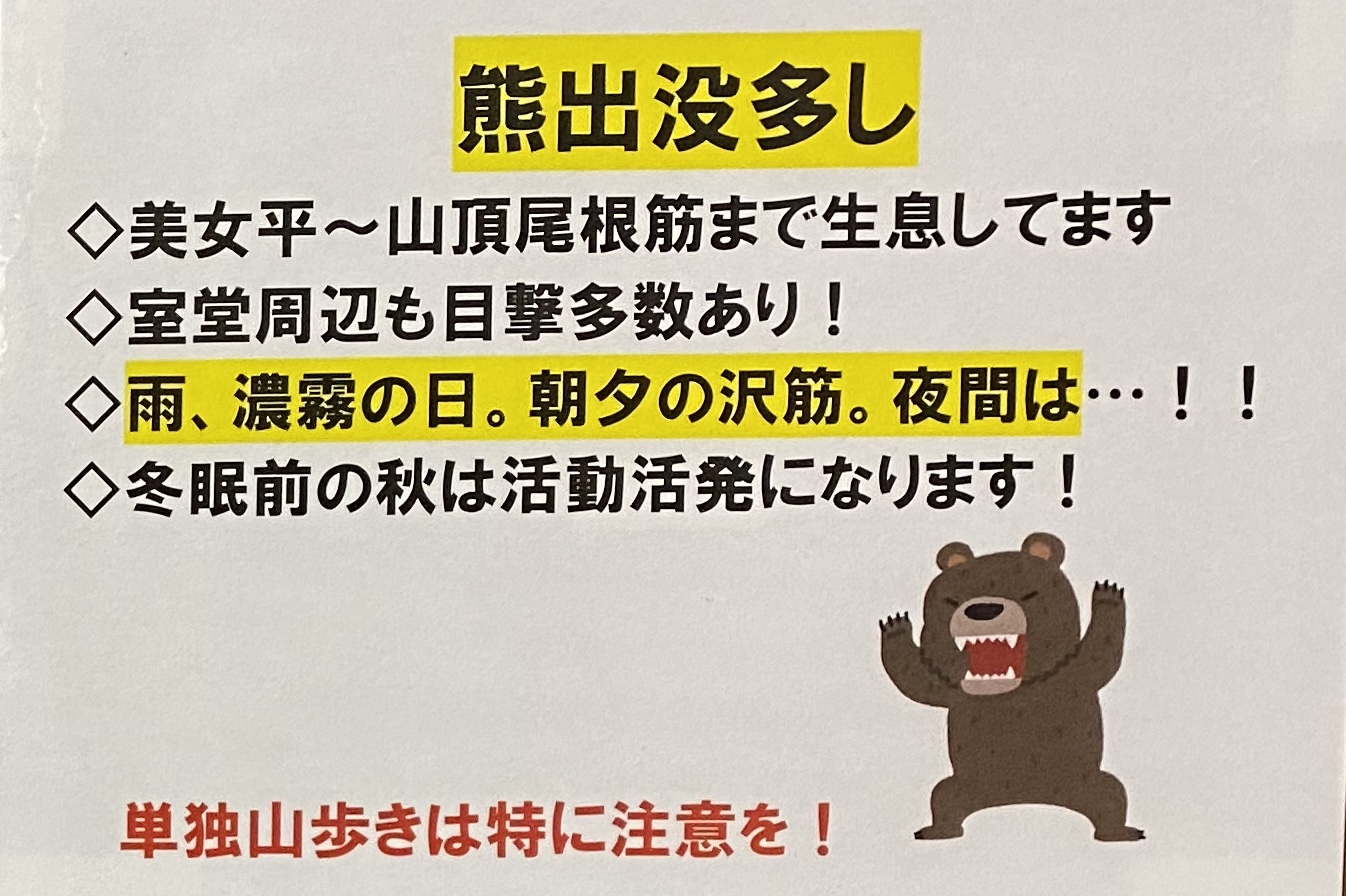“If you do what is right, will you not be accepted? But if you do not do what is right, sin is crouching at your door; it desires to have you, but you must rule over it.” Genesis 4:7
Last Friday was Mountain Day in Japan, a public holiday to encourage people to take some time off in the summer and enjoy the mountains. I decided to brave the heat and climb a mid-sized mountain. At the entrance to the trail, however, I was faced with a warning sign: Beware of Bears! On average bears kill 1 or 2 people every year in Japan and injure several others. As I pondered whether to risk climbing the mountain, another climber appeared so I figured it was safe if I followed him. Some others had obviously heeded the warning and had bells hanging from their rucksacks to warn any bears off.
For the past few days in Japan we have been hearing warnings about a typhoon making landfall today in the west of the country. Flights and trains in that area have been cancelled and people have been urged to take precautions and stay alert. Japan is a country with a lot of natural dangers such as earthquakes, flooding, mudslides, tsunamis and tornados, so it has developed sophisticated warning systems, including alarms on our phones and loud public announcements. Giving people warnings about a coming danger means that they can take action to try to stay safe.
Recently I was reading the story of Cain and Abel in Genesis 4 and was struck there by the warning that God gave Cain. I imagine that most of you know the story of Cain and Abel, the sons of Adam and Eve. Cain, the older son, worked the soil and his younger brother, Abel, kept flocks. In the course of time the two brothers brought offerings to the Lord. Cain brought some of the fruits of the soil and Abel brought fat portions from some of the firstborn of his flock. We are told that God looked with favour on Abel and his offering, but not on Cain and his offering. Although there are some different possible explanations as to why this was, the Bible doesn’t give any reason at this point. It just states that Abel and his offering were acceptable but Cain and his were not, and that Cain became furious and despondent as a result.
Perhaps some of you can relate to the emotions in this story. I think I can empathise a little with Cain. As a child I was the oldest, but also the naughtiest. My younger sister was generally the good one and it seemed to me at times that she was ‘favoured’. In fact she seemed to turn up the goodness whenever I was in trouble and make the contrast even more noticeable. And being told by my parents to take a leaf out of my sister’s book certainly didn’t help. So I find it interesting to note how God approaches Cain. Rather than make any comparisons or even scold Cain for his attitude, God decides to warn him.
God tells Cain that he is in a precarious position; sin is crouching at his door and it desires to have him. The sense is that sin wants to devour Cain like a predatory animal and is just waiting for the opportunity. God warns Cain because it is not too late. There is something he can do to avoid the danger. He doesn’t have to give in to sin. He can instead choose to do what is right and be accepted. Cain, however, refuses to heed God’s warning. Instead of choosing to exercise power over himself and his emotions, he exercises power over his younger brother, taking his life.
The image of sin crouching can be a helpful one to visualise, especially when we might be feeling tired, frustrated, or angry, when we sense the temptation to blame the other person, or to respond in a way which, although it might make us feel better in the short term, will in fact make things worse. At times like this, sin is crouching, waiting, wanting that wrong response. But God is giving us a warning, presenting us with a choice. Will we heed the warning and avoid the danger, choosing not to give in to sin but rather to do what is right?
But one final, more hopeful, note. Yes, sin desires us, but that is not the most powerful force at work. The Hebrew word translated as “desire” is an unusual one, “teshukah”. Apart from Genesis 3:16 there is only one other place in Scripture where this word appears, in Song of Songs 7:10. “I belong to my beloved and his desire is for me.” We belong to God and his desire is for us. That is stronger than any desire sin may have. As we seek to heed God’s warnings and avoid the danger of sin crouching at our door, we do not do so in our strength but in his mighty power, knowing that we are his.
By Lorna Ferguson


